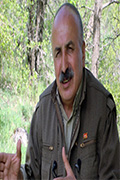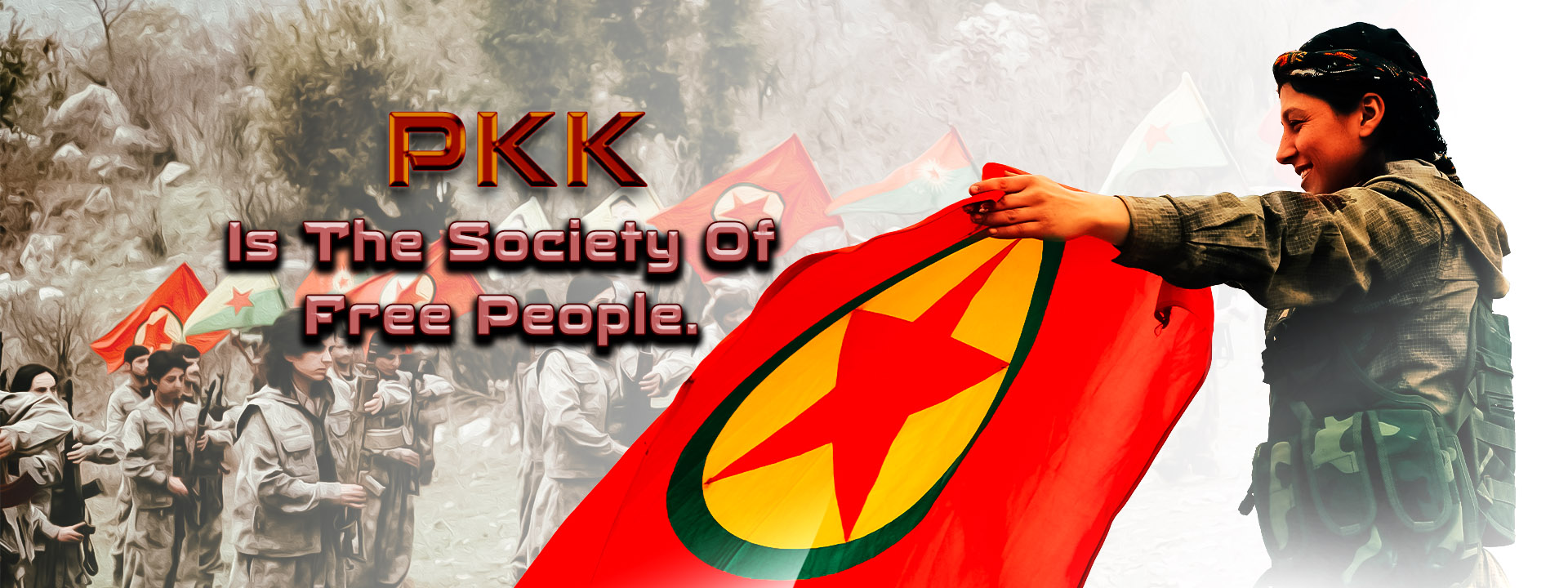 I must firstly state that the Kurdish freedom movement's quest in finding a democratic solution to the Kurdish question is not something new; this quest is at least twenty years old.
I must firstly state that the Kurdish freedom movement's quest in finding a democratic solution to the Kurdish question is not something new; this quest is at least twenty years old.
It is well known that the Kurdish freedom movement has always adopted a modest and consistent approach to this end. During these twenty years the Kurdish freedom movement's proposals for a solution have been coherent with Turkey's territorial dignity and have been based on a fundamental democratisation of Turkey. The following duality has been a basic principle for our movement: without a solution to the Kurdish question Turkey cannot democratise, and without a democratisation of Turkey the Kurdish question cannot be solved.
The Kurdish freedom movement is a socialist and anti-capitalist movement. It is opposed to the culture of capitalism and its social and economic ways. Our movement defines the state as ontologically opposed to democracy and freedoms and it does not see the state as either a solution to the national question or a means to socialism. State abolition and state making is not seen as revolutionary action, rather, our movement possesses a philosophical and ideological paradigm in which state opposition is practiced via the construction of an alternative stateless system. The Kurdish freedom movement holds the view that military violence, in the final analysis, only serves to strengthen state structures; while an atmosphere of democratic politics strengthens social dynamics. Saying this however, where the opportunity to practice democratic politics does not exist then self-defence mechanisms can be legitimately deployed.
The Kurdish freedom movement states that democracy and freedom can only be achieved by struggling against the state through the democratic self-institutionalisation of the people. Our paradigmatic approach identifies the state, by definition, as unable to supply its subjects with democracy and freedom; even to be in expectancy of this is to submit to slavery. Only when the actions of our movement are analysed within this context can reliable evaluations be made.
This was the ideological stance of the PKK during war; and now, during the stage of democratic struggle. This is not subject to change in an atmosphere of peace. During peace the struggle doesn't end, only the means of struggle change. Peace is a time in which armed violence is no longer a means of struggle; however, needless to say the struggle itself goes on. The struggle against state sovereignty will always continue. This struggle will continue to be pursued through revolutionary means. The establishment of a stateless society is an expression of a radical and fundamental struggle. Democratic struggle and democratic politics are deployed in order to achieve these radical and fundamental ends.
Only once the very existence of a people has been established and is being acknowledged can democratic struggle become a preferential means. The Kurdish people's leader Mr. Ocalan and the Kurdish freedom movement are struggling within these parameters.
Only eighteen months ago the AKP government was adamant on "crushing" our movement and even talking about executing the Kurdish people's leader; it must be well understood that the current atmosphere has come about as a result of an arduous struggle. Anyone with a right mind must surely be able to appreciate this. The Kurdish freedom movement is by no means showing any concessions on its principles or its social projects; rather, it will be the Turkish state and the AKP government that will have to go back on its backwards, chauvinistic and dictatorial policies. The aim of the democratic struggle is to bring the state and the AKP to commit to a democratic solution. The Kurdish people are insistent on utilising their most basic rights. Economic, political and cultural self-administration is a principle ambition. A democratic solution for us is structured around these principles. It is needless to say that the Kurdish freedom movement is in no concession of any of its principle ambitions. The intention behind the very retreat of our guerrilla forces was to create an atmosphere in which these principle demands can be met and subsequently put into practise.
Claims that the PKK and the AKP are negotiating on a prospective Turkey that will be authoritarian while also leaving aside other communities are way off the mark. These are fabrications belonging to those that oppose the search for a democratic solution by the Kurdish people's leader. On the contrary the efforts of the Kurdish people's leader is making the AKP take steps backwards, while also propagating the freedoms of all the peoples of Turkey.
These are the aims of the process of democratic struggle. However, the destiny of this process lies in the outcome of the struggle between the hegemonic powers and the forces of democracy. Hegemonic forces have never been ones to easily concede their grasp on power and privileges. The character of this process will only be defined by the resolute stance of the revolutionary democratic struggle. The AKP may still be intending to drag the process on, or it may not be determined in solving the Kurdish issue or democratising Turkey; however, if the forces of democracy show support for the efforts of the Kurdish people's leader then the AKP will have to show compromise by opening itself to democratisation. This can only be achieved through a cooperative union of the Kurdish people and the democratic forces of Turkey.
Written by Executive Committee Member of the KCK Mustafa Karasu
http://kurdishquestion.com/north-kurdistan/news/the-search-for-a-democratic-solution-is-also-a-struggle-against-all-hegemonic-powers.html



